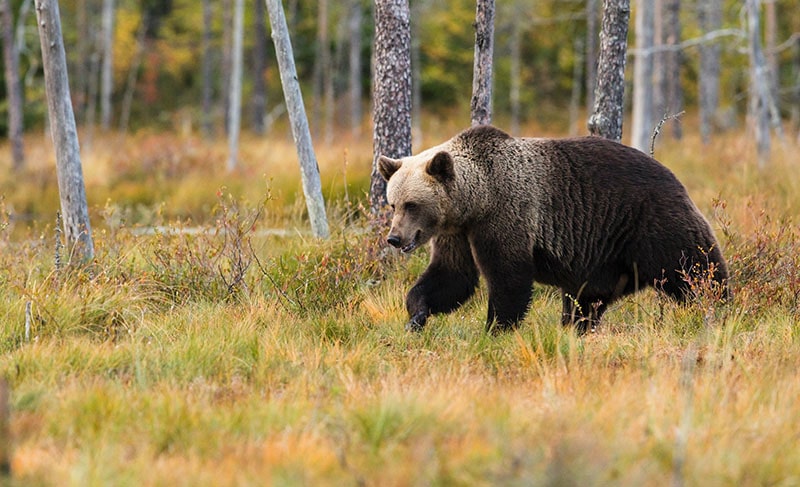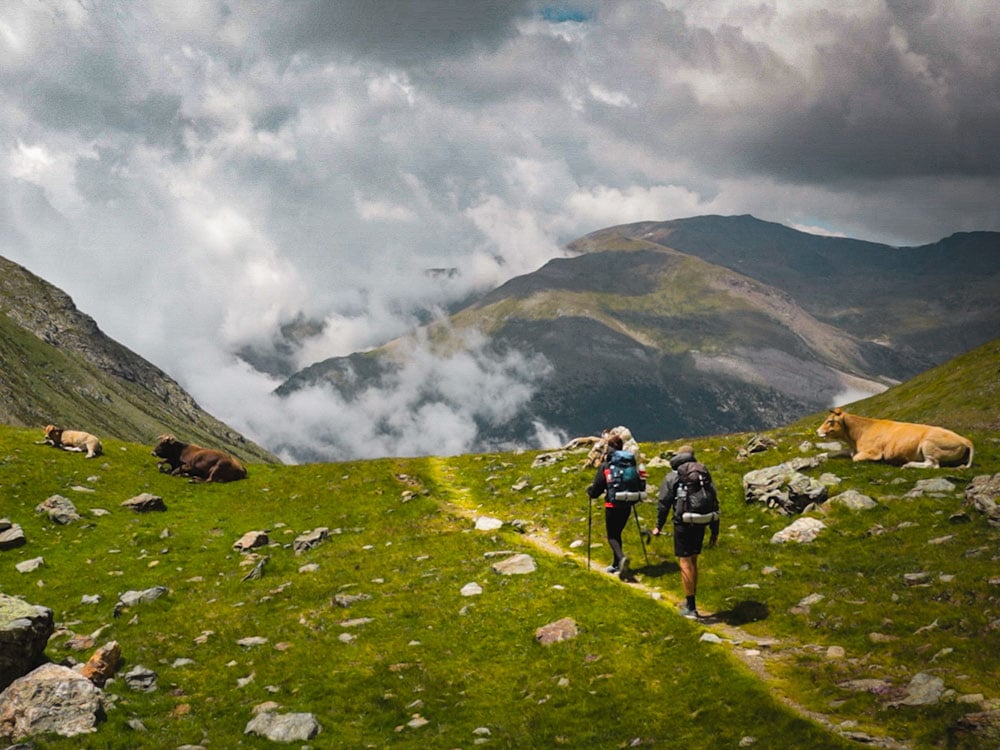There’s a good reason why you’ll sometimes hear bells in the distance when hiking in bear country and other remote areas.
Hikers wear cowbells to warn bears and other wild animals of their presence. Attacks from wild animals usually happen when the animal is startled. Cowbells make sounds that can be heard tens or hundreds of feet away, which warns the animal so that it can avoid encountering you.
Some people call them cowbells, but there are other names for them as well, like “bear bells” “animal noise makers” and “hiking bells”. They all follow the same principle – it’s a simple, small bell that you can attach to your backpack or to your dog’s collar. You can usually find them in outdoor gear stores or buy one on Amazon.
Do Bear Bells Work?
People seem to be in disagreement about whether bear bells actually work. There are two main arguments against them. The first one is that bear bells sound too similar to birds chirping, which can cause the animal to mistake you for a bird. The second one is that wild animals are already used to the sound because not only hikers use them, but also farmers for their horses, cows, sheep, and goats.
In older research published in 1982, which was based on human encounters with grizzly bears in Glacier National Park, the results suggested that cowbells are indeed effective. More grizzly bear encounters were registered with people who weren’t wearing cowbells. But it’s a very old study with a small sample size.
There aren’t any more recent studies on this subject, but a prominent bear-human conflict expert Tom Smith says that bear bells don’t work. For context, he has studied bear behavior when encountering humans for decades. To test this, he hid in a hidden shelter where bears are likely to hang out. He played the sound of bear bells, music, and typical conversations between humans, and observed the responses of multiple bears. He noted that bears typically ignore these monotone, low-volume sounds. They are more likely to respond to sudden, higher-volume sounds, like clapping hands or shouting “Hey”.
Should You Use a Bell When Hiking in Bear Country?

Bear bells aren’t 100% mandatory when hiking in bear country, but they can be helpful. Experts suggest that bears aren’t afraid of the sound of bear bells, and they only respond to loud, sudden noises. But that doesn’t mean that bear bells are completely ineffective.
When hiking in remote areas, you shouldn’t only be worried about bears. For example, here in Europe, in the Alps, we have a lot of wild boar, mountain goats, and deer. They can be dangerous if startled, especially during spring when they have offspring. Other animals that you should avoid startling are coyotes, wolves, wild cats, and other human-sized animals. When startled, they might attack you to protect their offspring. Other animals might respond better to bear bells since they are startled much more easily than bears and have better hearing.
Read Next: What Is Cross Country Hiking? (Guide)
Alternatives to Bear Bells – How to Avoid Startling Wild Animals
There is another alternative to bear bells called bear horns. It’s essentially a handheld horn that makes a sudden loud noise. But they’re less useful than bear bells because they don’t make the sound all the time, and they’re very disturbing for other hikers.
The best alternative to bear bells is talking, singing, whistling, and stepping on branches. This should act similarly to bear bells and alert other animals of your presence.
But you have to be aware of your surroundings as well. If you’re in an open, clearly-visible forest or meadow you don’t need to make any sounds. That’s because animals will see you and you will see them from a long distance. You should also clap your hands or yell “Hey” before going through thick overgrowth. Loud, sudden bursts of sound are better than monotone low-volume ones.
On windy days, you need to be extra careful because the animals most likely won’t hear you due to the wind. Sound is also influenced by the direction of the wind – if you’re walking against the wind, you need to be louder. Also, animals can usually smell you from a long distance. If you’re walking against the wind, they might not be able to do that, so you have to be extra careful not to startle them.
You should also avoid hiking along rivers and on very overgrown trails. Bears like to hang out and traverse along rivers, so you should avoid walking there for extended periods. On very overgrown trails, you are much more likely to startle a wild animal. So ideally, choose trails with a lot of clear visibility in the distance.
Summing Up: Hiking With Bear Bells
Experts say that bear bells don’t make a big difference because large animals don’t feel startled by them. They’re only good for letting other animals know of your presence that have better hearing, like bobcats, dear, wild boars, and wolves.
But they’re also beneficial for another purpose. If you’re hiking with a dog, then by attaching them to your dog, you’ll always know its location. Dogs also move faster, so the bear bells make more noise and are more efficient. So if you’re hiking with a dog, using bear bells makes a lot of sense.
